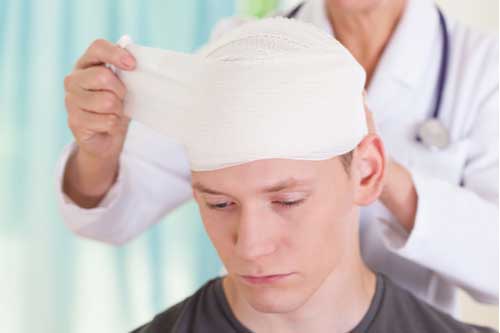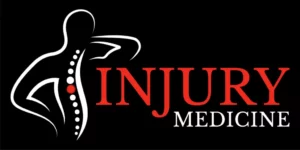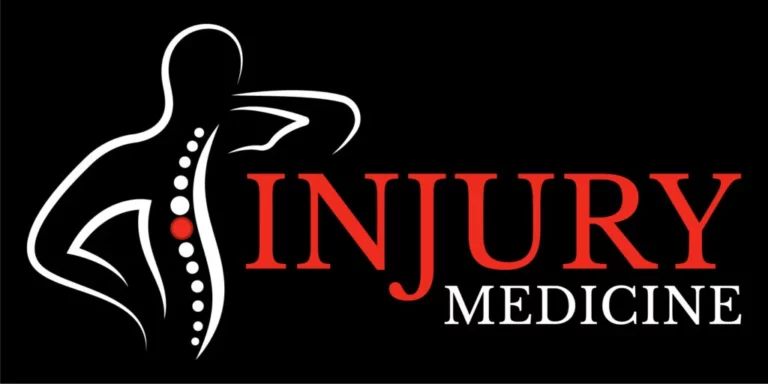If you or a loved one has experienced a brain injury, stroke, lack of oxygen, aneurysm, concussion, or any other type of head injury, you are not alone.
More than 600,000 men, women, and children are currently dealing with some form of traumatic brain injury (TBI) that has been caused by some violent external force – including car crashes, school sports accidents, or slip-and-fall accidents.
Injury Medicine in Anderson, SC is your trusted partner ready to help you overcome your life-threatening condition.
Our expert team of healthcare providers offers a wide range of treatments for head injuries in Anderson, SC and we can assure you that you will receive the best care with a treatment plan tailored to you.
Schedule an appointment by calling our head injury doctors in Anderson, SC at 864-866-PAIN to assess and treat your condition.
Types of Head Injuries
Head injuries are a leading cause of disability and fatalities in adults. They can range from mild injuries like cuts on the head to moderate or severe injuries like deep cuts, open wounds, or damage to the brain.
Depending on the severity of the head trauma, these injuries are commonly referred to as either a brain injury or a traumatic brain injury (TBI). Here are different types of head injuries:
Headaches
Headaches can be caused by various factors such as tension, dehydration, lack of sleep, sinus pressure, or a concussion. Depending on the underlying cause, treatment options may vary. Mild headaches can be managed with over-the-counter pain relievers, rest, hydration, and avoiding triggers.
However, if headaches persist or become severe, it is important to seek medical attention for proper diagnosis and treatment. In some cases, headaches may be a symptom of a more serious condition, such as a brain injury or tumor.
Skull Fractures
A skull fracture refers to a break in the skull bone, and there are different types of skull fractures, including linear skull fractures, basilar skull fractures, depressed skull fractures, and diastatic skull fractures.
Traumatic Brain Injuries
Traumatic brain injuries (TBI) are caused by a sudden, external, physical force that damages the head/brain and can affect how it works.
This can result in a wide range of symptoms, from mild, such as a brief change in mental status or consciousness, to severe, such as extended periods of unconsciousness or amnesia. TBI can also cause long-term complications, such as cognitive, emotional, and physical disabilities.
What Is a Traumatic Brain Injury?
That is correct. Mild TBI, also known as a concussion, is the most common form of TBI and usually does not cause lasting damage. Moderate and severe TBIs, on the other hand, can result in long-term cognitive, physical, and emotional problems.
It’s essential to seek medical attention if you suspect a TBI, as early diagnosis and treatment can improve the chances of recovery.
Facts About Traumatic Brain Injuries
Traumatic brain injuries (TBI) are a significant contributor to disability and mortality in the United States, with over 30% of injury deaths in the country attributed to TBI.
The Centers for Disease Control and Prevention (CDC) reports that more than 153 individuals lose their lives each day due to injuries, including those caused by TBI.
The effects of TBI can last for days, weeks, months, or even a lifetime, and include cognitive impairments, memory problems, mood changes, and other related symptoms.
Common Causes of TBIs
There are several factors that can cause traumatic brain injuries (TBIs). Among the most frequent causes are:
- Auto accidents: TBIs can result from collisions involving cars, buses, motorcycles, or bicycles, and can affect both the drivers and the pedestrians involved in the accidents.
- Slip and fall accidents: Accidents in the workplace or at home caused by slips and falls can lead to TBIs. Falls from ladders, beds, stairs, or in the bathroom are common causes of TBI, particularly among small children and older individuals.
- Workplace injuries: Over 50% of work-related TBI fatalities are experienced by employees in the construction, farming, fishing, transportation, and forestry sectors.industries.
Treatment for Traumatic Brain Injury
Traumatic brain injuries (TBIs) are serious medical emergencies that require prompt and appropriate treatment. Without proper intervention, the consequences of TBI can rapidly worsen.
Therefore, it is essential to seek immediate medical attention from a qualified healthcare provider who can evaluate your condition and begin the appropriate treatment. Some of the most common treatments for TBI include:
Medications
Depending on the severity of the head injury, medications such as diuretics, anti-seizure drugs, and coma-inducing drugs may be prescribed to manage symptoms and prevent further damage.
Surgery
In some cases, surgery may be necessary to relieve pressure on the brain, remove clotted blood, repair skull fractures, or address other complications caused by the injury.
Rehabilitation therapy: Following the acute treatment phase, rehabilitation therapy may be necessary to help you regain lost functions and improve your quality of life.
Mild TBI
A mild traumatic brain injury may not require treatment other than complete rest and over-the-counter painkillers. But the patient should be closely monitored at home for worsening symptoms. On the other hand, the patient may require follow-up doctor appointments.
Emergency Care
Emergency care is important for moderate to severe traumatic brain injuries. It helps make sure the patient has enough oxygen and adequate blood supply. The blood pressure should be regularly monitored.
Hospitalization will also help minimize secondary damage due to inflammation, bleeding, or reduced oxygen supply to the brain.
Rehabilitation
Patients who have experienced moderate to severe TBIs may require rehabilitation. They may need to relearn basic skills including talking and walking. Rehabilitation helps improve their abilities to perform daily activities.
Symptoms of a TBI
The following are common signs of a traumatic brain injury:
- Headaches
- Nausea
- Vomiting
- Drowsiness
- Fatigue
- Sensory issues
- Sensitivity to light and sound
- Mood swings
- Sleep issues
- Depression and anxiety
Diagnosing Your Head Injury
To diagnose a head injury, healthcare providers and doctors utilize both diagnostic tests and physical examinations. During the exam, the healthcare provider will obtain a comprehensive medical history of the patient and their family, and inquire about how the head injury occurred.
It may also be necessary to see a neurologist for further assessment.
Get the Best Treatment for Head Injuries in Anderson, SC!
If you or someone you know has suffered a brain injury, stroke, lack of oxygen, aneurysm, concussion, or any other type of head injury, it is essential to seek prompt medical attention. At Injury Medicine in Anderson, SC, we specialize in assessing and treating head injuries.
Our expert team of healthcare providers offers a wide range of treatments tailored to your individual needs to provide you with the best possible care. To schedule an appointment, please call us at 864-866-PAIN. We are committed to helping you recover and improve your quality of life.


